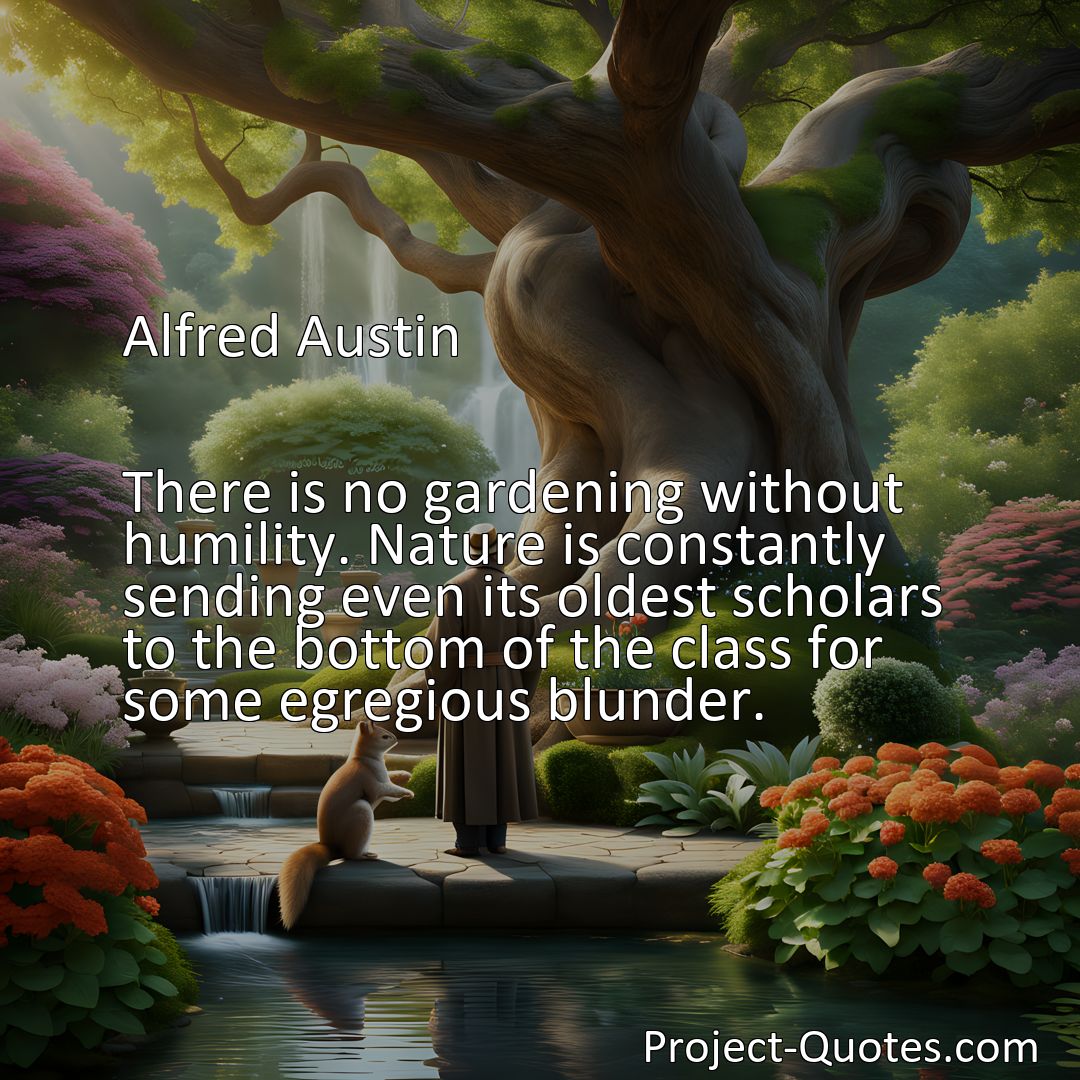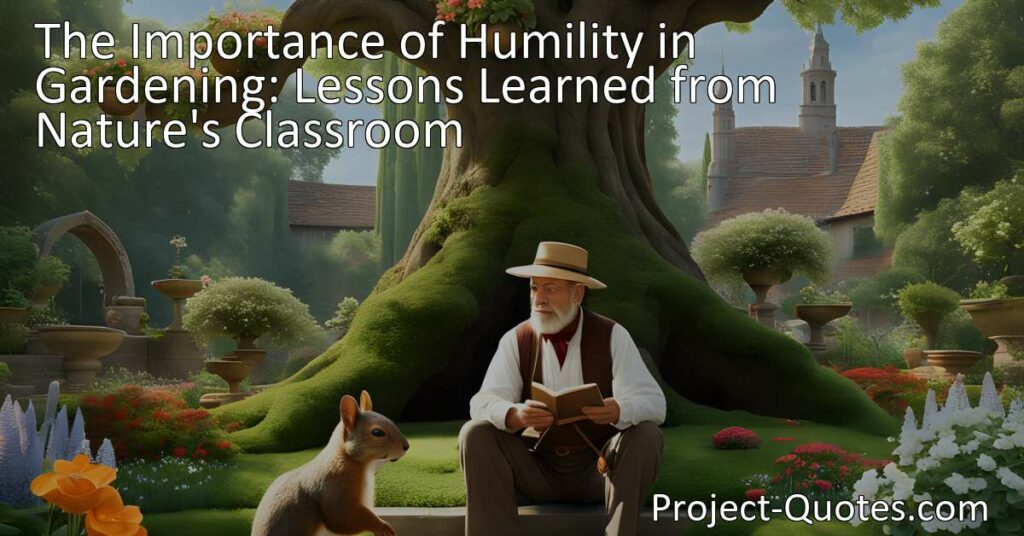There is no gardening without humility. Nature is constantly sending even its oldest scholars to the bottom of the class for some egregious blunder.
Alfred Austin
The Importance of Humility in Gardening: Lessons Learned from Nature’s Classroom teaches us that gardening is a humbling experience that reminds us of our limitations, our role as custodians of nature, and the interconnectedness of all living beings. Through gardening, we learn valuable lessons in perseverance, patience, and the importance of embracing failure. It also inspires compassion, mindfulness, and a deep appreciation for the beauty and wisdom of nature.
Table of Contents
- 1 There is no gardening without humility. Nature is constantly sending even its oldest scholars to the bottom of the class for some egregious blunder.
- 2 Alfred Austin
- 3 Meaning of Quote – There is no gardening without humility. Nature is constantly sending even its oldest scholars to the bottom of the class for some egregious blunder.
- 4 Freely Shareable Quote Image
- 5 Related
Meaning of Quote – There is no gardening without humility. Nature is constantly sending even its oldest scholars to the bottom of the class for some egregious blunder.
Gardening, a beloved and rewarding hobby for many, teaches us much more than simply how to cultivate plants and beautify our surroundings. It is a beautiful dance between human and nature, where both parties learn and grow together. As a famous quote by Alfred Austin suggests, “There is no gardening without humility.” In this enlightening perspective, Austin reminds us that even the most experienced gardeners often find themselves humbled by nature’s inherent wisdom and immense power.
Nature, as the ultimate teacher, has a way of humbling us all. It does not discriminate based on age, experience, or knowledge. Instead, it gently reminds us that despite our best efforts, we are still only students in its grand classroom. Whether we are planting seeds, tending to delicate blooms, or attempting to control unruly weeds, nature continuously reminds us that we can never fully grasp its complexities.
To truly understand the significance of Austin’s quote, we must delve into the various forms of humility that gardening cultivates within us. Firstly, there is the humility of realizing our limitations. No matter how much we think we know about gardening, nature can always surprise us. Even the most seasoned gardeners can make mistakes or encounter unforeseen challenges. It is in these moments of humility that we learn to approach gardening with an open mind and a willingness to adapt.
Moreover, gardening instills in us the humility to accept that we are mere custodians of nature’s creations. We plant seeds, water and nourish the soil, and provide a nurturing environment for plants to thrive. Yet, ultimately, it is nature that decides the fate of every living organism. We can guide and support growth, but we must remember that we are not in complete control. Thus, gardening humbles us by reminding us of our role as partners rather than masters of nature.
In addition to humility, gardening teaches us countless valuable lessons. It educates us about perseverance, patience, and the importance of embracing failure as an opportunity for growth. Every gardener has encountered setbacks such as plants failing to bloom or succumbing to diseases. These incidents serve as reminders that success often follows setbacks and that patience is essential in gardening and life.
Furthermore, gardening opens the door to a deeper understanding and connection with the natural world. It enables us to witness the intricate cycles of life, the harmonious interdependence of various species, and the resilience of nature in the face of adversity. This profound connection instills a sense of gratitude and awe for the wonders of the earth. By being aware of the delicate balance and intricate web of life, we learn to tread lightly and respect the natural environment.
Gardening’s nurturing nature also inspires compassion and empathy within us. As we witness the growth and development of plants, we become attuned to their needs and vulnerabilities. We learn to care for them, to protect them from pests, and to provide the optimal conditions for their well-being. In fostering this empathy for plants, we often extend it to other living beings, fostering a deep respect and appreciation for the interconnectedness of all life on our planet.
Furthermore, gardening invites us to be mindful and present in the moment. When we are tending to our plants, we become immersed in the tasks at handtransplanting, pruning, and watering. In this state of mindfulness, we lose ourselves in the rhythm of nature and find solace from the busy world around us. Gardening allows us to slow down, listen to the birds’ songs, feel the sun on our skin, and experience the wonders of the natural world.
In conclusion, Alfred Austin’s insightful quote, “There is no gardening without humility,” encapsulates the profound lessons we learn through this age-old practice. Gardening continuously humbles us by reminding us of our limitations, our role as nature’s custodians, and the interconnectedness of all living beings. It nurtures essential qualities such as patience, perseverance, gratitude, and empathy. Moreover, it encourages us to be mindful and present, fostering a deeper appreciation for the beauty and wisdom of nature. As we embark on our gardening journeys, let us remember to approach it with humility, embracing the valuable lessons and transformative experiences it offers.
I hope this quote inspired image brings you hope and peace. Share it with someone who needs it today!


